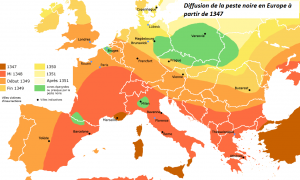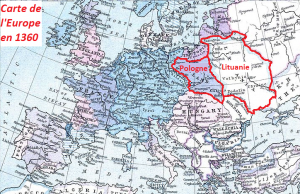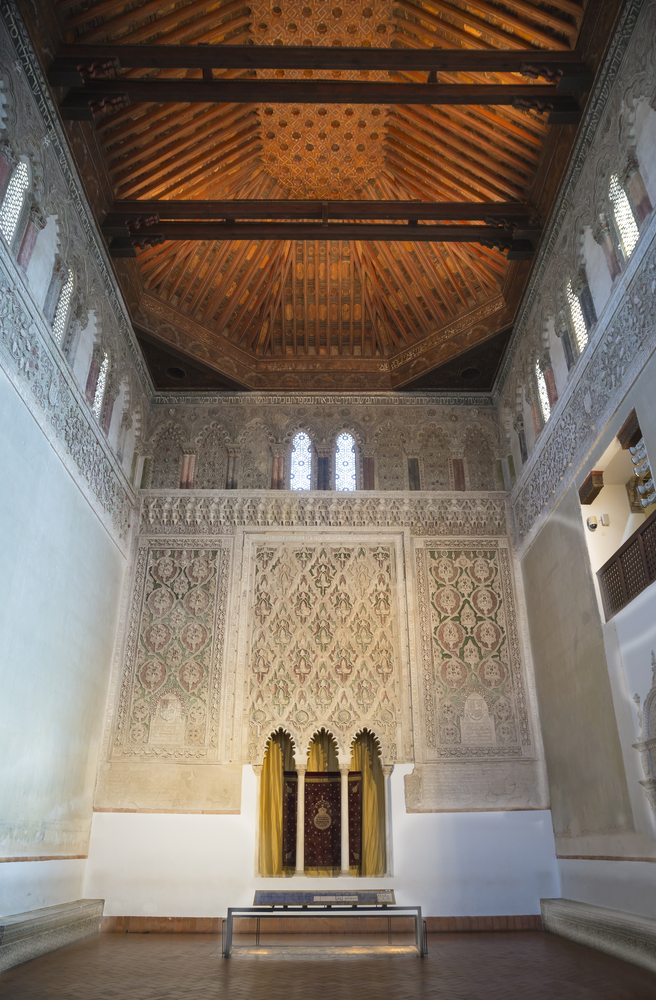
1350 AD to 1370 AD, Psalm 115: Samuel Halevi.
This site was first built in French (see www.147thgeneration.net). The English translation was mainly done using « google translation ». We have tried to correct the result of this translation to avoid interpretation errors. However, it is likely that there are unsatisfactory translations, do not hesitate to communicate them to us for correction.
(for that click on this paragraph)
Summary
This generation of the 1350s and 1360s.
According to our count, this generation is the 115th generation associated with Psalm 115. It is in this Psalm 115 that we therefore find an illustration of the facts of this generation.
This generation is the one that succeeds the great Black Death of 1348. The results are terrible: the Plague and the pogroms that followed it annihilated Jewish life in Europe, many communities in Germany have disappeared or have been reduced to their own. simpler expression.
The communities of Christian Spain were pretty much spared. The El Transito synagogue (name given afterwards), which Samuel Halevi completed in 1357, marks the height of Spanish Judaism under Christian rule.
His great power and influence at court ruined him. The king, Peter the Cruel, his great protector, rose up against him, without it being quite clear why, and ordered the confiscation of his fortune. Thrown in prison, Samuel Halevi, the powerful Jewish adviser was tortured, probably because his accusers wanted to extort the secret of his rich hiding places from him, and he died in great suffering.
Henri de Trastamare had Peter the Cruel killed and succeeded him. Not preferring not to punish the Jews loyal to Peter the Cruel. In spite of everything, he established, to satisfy the Pope, the wearing of the rouelle to the Spanish Jews. A sign that clouds are gathering in the serene skies of Spain for the Jews.
Talk
The toll of the black plague
This generation is the one that succeeds the great Black Death of 1348, as well as at the end of World War II, the Jewish people in the West can only make a terrible toll: Plague and pogroms (although the term is here anachronistic) who followed it destroyed the Jewish life in Europe. Many communities in Germany have disappeared or have been reduced to their simplest form.
While many Jews have taken refuge in the lands of Eastern Poland and Lithuania, or Spain, they have not yet rebuilt communities comparable to those destroyed.
Thus, the misunderstanding of the Jews after the massacre is expressed in the beginning of the psalm of this generation:

- Not for us, O Lord, not for us, but for Your name give honor, for Your kindness and for Your truthfulness.
- Why should the nations say, « Where is your God now? »
But the state of the Jewish people in this generation corresponds to a long-standing prediction by Moses in Deuteronomy:
- When [1] you beget children and children’s children, and you will be long established in the land, and you become corrupt and make a graven image, the likeness of anything, and do evil in the eyes of the Lord your God, to provoke Him to anger,
- I call as witness against you this very day the heaven and the earth, that you will speedily and utterly perish from the land to which you cross the Jordan, to possess; you will not prolong your days upon it, but will be utterly destroyed.
- And the Lord will scatter you among the peoples, and you will remain few in number among the nations to where the Lord will lead you.
- And there you will worship gods, man’s handiwork, wood and stone, which neither see, hear, eat, nor smell.
- And from there you will seek the Lord your God, and you will find Him, if you seek Him with all your heart and with all your soul.
- When you are distressed, and all these things happen upon you in the end of days, then you will return to the Lord your God and obey Him.
The Jewish people are well reduced to a miserable rest dispersed among the peoples, since those who have been spared go as far as populating the extremities of Europe, to the north and to the east.
This is why the continuation of the Psalm recalls this passage by evoking the idols and their powerlessness both to recall that these misfortunes if they were the result of exaction on the part of the peoples towards the Jews, this enters a logic divine who will eventually see the reconciliation of God with his people (what Deuteronomy expresses later):

- But our God is in heaven; whatever He wishes, He does.
- Their idols are silver and gold, the handiwork of man.
- They have a mouth but they do not speak; they have eyes but they do not see.
- They have ears but they do not hear; they have a nose but they do not smell.
- Their hands-but they do not feel; their feet-but they do not walk; they do not murmur with their throat.
- Like them shall be those who make them, all who trust in them.
Samuel Halevi
If all the Jewish communities in Europe were impacted by the Black Death of 1348 and its fallout, the communities of Christian Spain are almost spared.
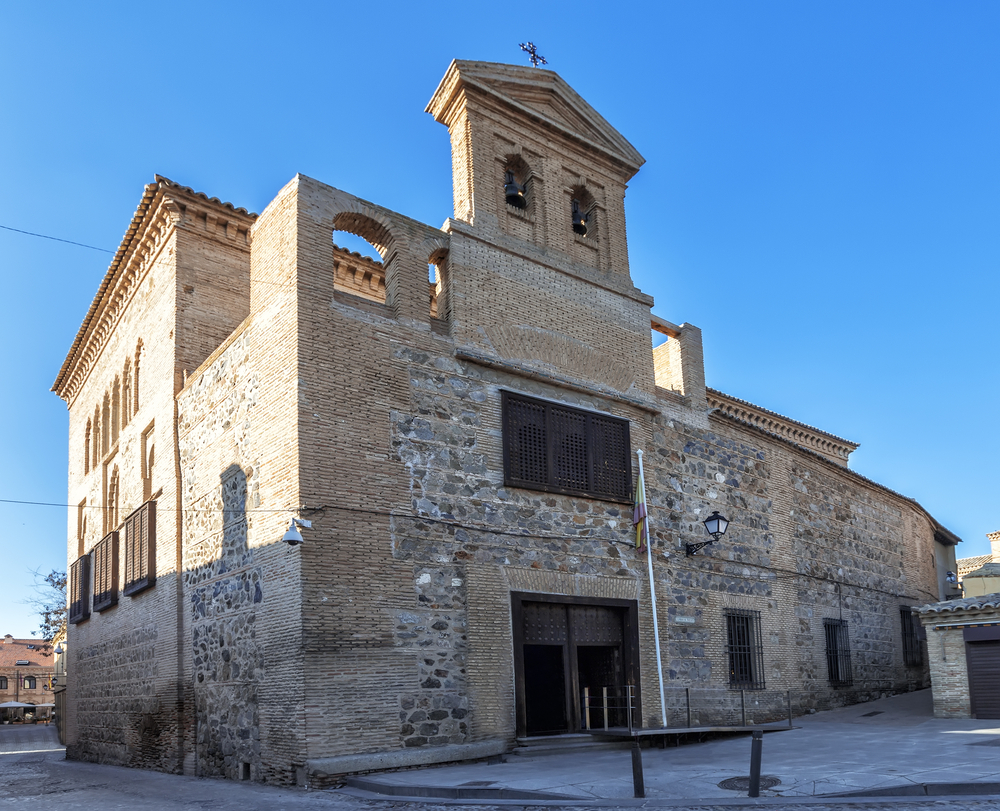
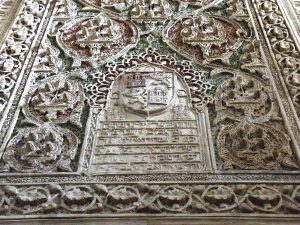
The synagogue El Transito (name given later), which Samuel Halevi completed in 1357 marks the peak of Spanish Judaism under Christian rule. The following years will quickly remedy this exception and the Jews of Spain will soon be forced to convert or exile. The synagogue itself today bears this name because it was later transformed into a church, the name « El Transito » coming from a painting representing the death (the transit) of the Virgin who was exposed thereafter.
This synagogue, a building intended to overcome the absence of the Temple of Jerusalem, was built in Toledo. Toledo where the legend indicates that Tariq, during the Arab conquest of Spain (see generation 83), there found the table of Solomon precious vestige of the Temple of Jerusalem.
This ephemeral apogee justifies the continuation of the psalm of this generation which makes a large reference to the House of Aaron which before the exile was the Temple of Jerusalem and which since its destruction is materialized by the synagogues in Diaspora whose synagogue of Toledo is one of the most beautiful representations:

- Israel, trust in the Lord; He is their help and their shield.
- House of Aaron, trust in the Lord; He is their help and their shield.
- Those who fear the Lord, trust in the Lord; He is their help and their shield.
- The Lord, Who remembered us, will bless; He will bless the house of Israel; He will bless the house of Aaron.
Power plays and the setbacks of the Jewish community
To rise as high in the spheres of power is not without risks and Samuel Halevi is the illustration:
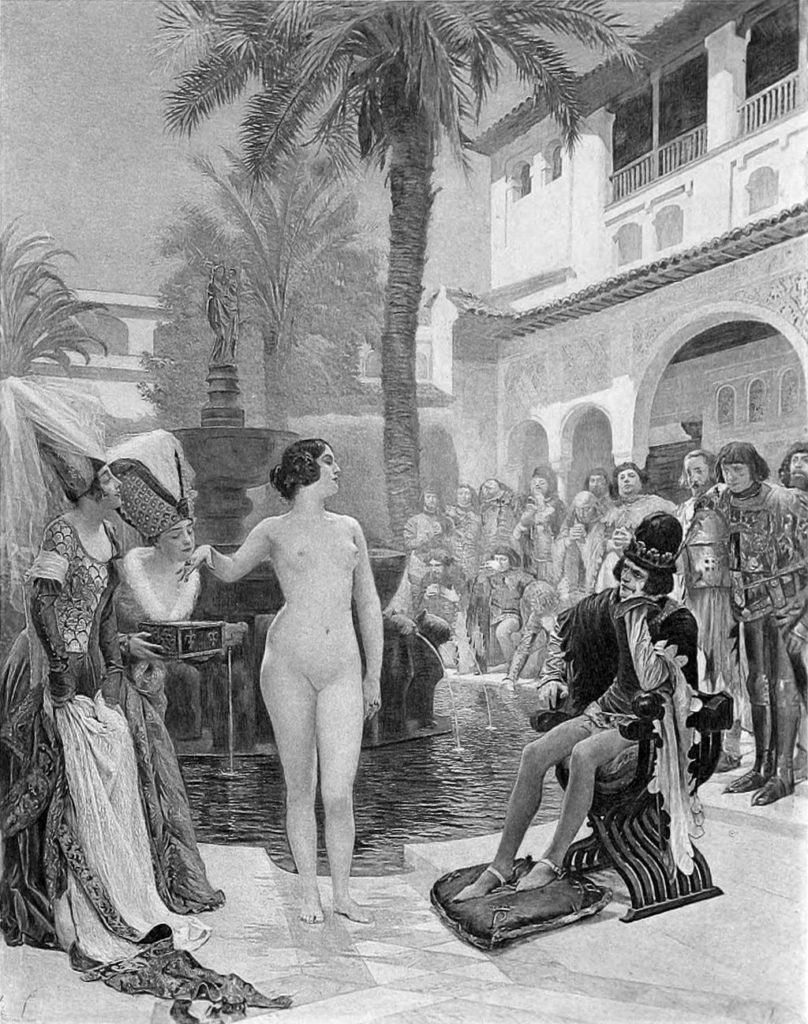
- Under [2] the reign of Peter the Cruel an illustrious representative of the family Abulafia Ha Levi of Toledo, Don Samuel ben Meir Ha Levi, got high charges, and another, Abraham ibn Carçal, was doctor of the court. Internal struggles in the royal family eventually compromised the Jews who had sided with Maria de Padilla, mistress of the king. Don Samuel chose the right camp, that of the conqueror, and obtained great benefits for him and for the other Jews of Toledo and the kingdom.
- It was, however, his great power and his influence at the court which ruined him: the king, his great protector, rose up against him, without knowing it very well why, and ordered the confiscation of his fortune, duplicates, gold and silver, and one hundred and eighty slaves. Thrown into prison, the powerful Jewish counselor was tortured, no doubt because his accusers wanted to extort from him the secret of his rich hiding places, and he died in great suffering.
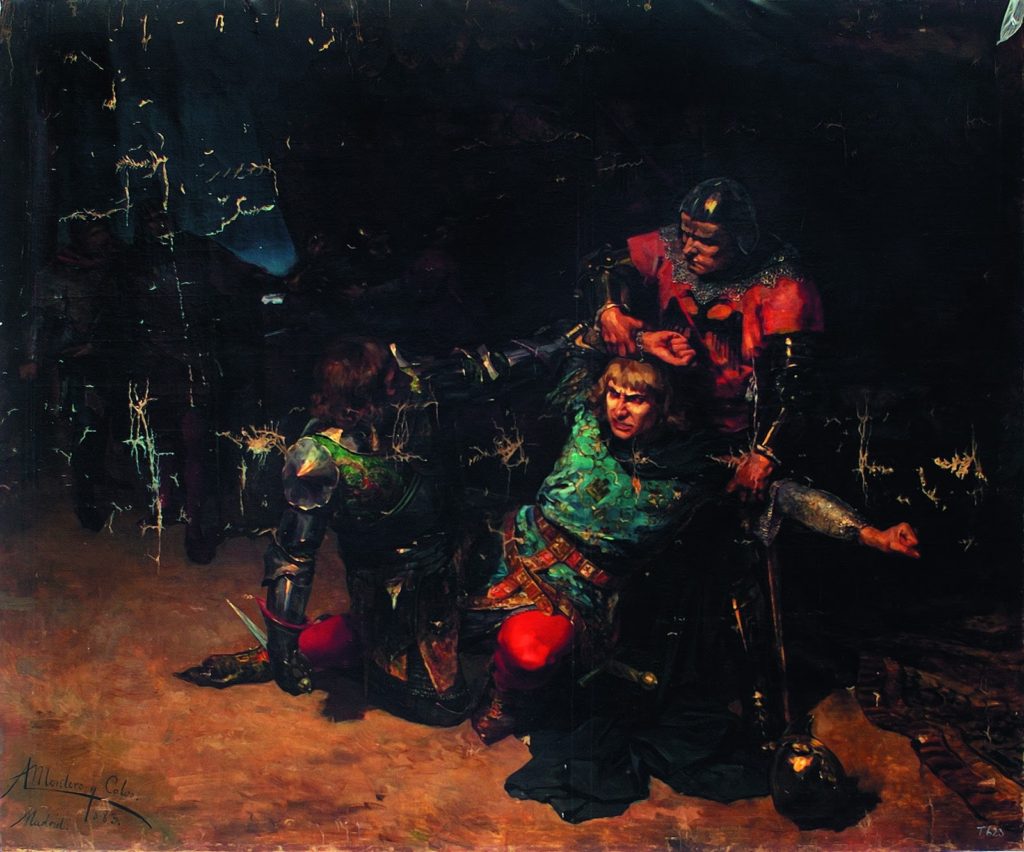
- These events had no immediate repercussions on the Jews, but King Peter was soon accused of their weakness by his brother Henry of Trastamare who also desired the support of the pope. Toledo fell and the Jewish community was punished for his loyalty to Peter Le Cruel by high taxes. In the end, Henry, seconded by the French troops, finally killed his brother Pierre and his faithful in 1369. Urban V celebrated this victory as a triumph of the papacy, expressing satisfaction for the disappearance of the tyrant, rebel to the Church and protector of the Jews.
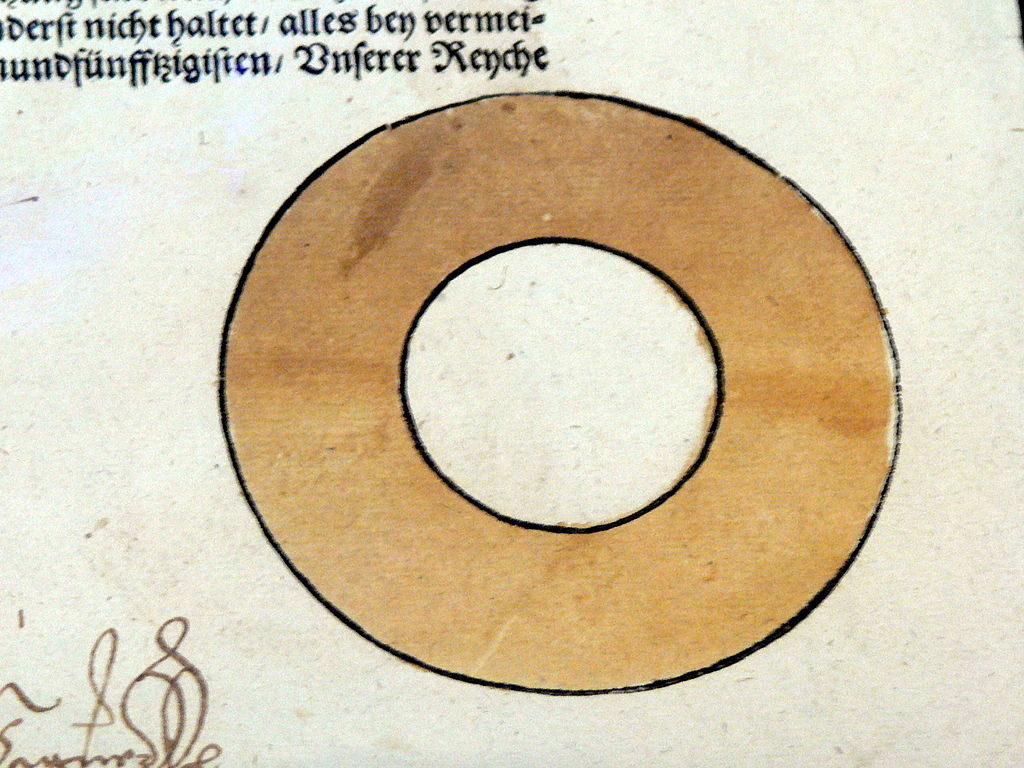
- But Henry of Trastamare preferred not to punish Jews loyal to Peter the Cruel: he even appointed Don Joseph Pichon Minister of Finance and took to advise Don Samuel Abrabanel, both of the community of Seville, which aroused jealousies and suspicions in the nobility Castilian. To quell the protests, the new sovereign, forced to some zeal vis-à-vis the pope, imposed the « rouelle » on the Spanish Jews and forced them to give up their Castilian names to take back their names.
- These measures, relatively less severe than in the rest of Europe, marked the beginning of the decadence of the Spanish community. Fifty years after the turmoil of continental Europe, clouds accumulated in the serene sky of Spain. Some Jews, well-known figures of great political influence and highly regarded at court, were compromised in conspiracies, arousing hatred and jealousy, and then dragging many of their co-religionists into disgrace.
Samuel Halevi, like other court Jews before him, thought he had enough time to care for his community, but when he died, it was culturally weakened:
- Thanks [3] to the wisdom of his counsels, to the skill of his financial administration and to the zeal he displayed for the cause of Mary of Padilla, Samuel grew more and more in the favor of Don Pedro. His influence was considerable, his wealth immense, and he had at his service eighty black slaves. But he seems to have been able to do anything for the cause of Judaism and the future of his coreligionists. An inscription says, it is true, that he worked for the good of his brothers, but he did not understand what this well-being should consist of. While protecting the Jews against malevolence, by calling them to public office and providing them with the opportunity to get rich, he did not know how to be useful to them, like Hasdai ibn Schaprout and Samuel ibn Nagrela. He does not appear to be interested in science or poetry either. For if he had synagogues built in several cities of Castile, he did not found a single school for teaching the Talmud.
Thus the end of the Psalm draws this conclusion that the survival of Jews in exile can not be reduced to the success of some elites (« the great« ) and passes through the development of all (including « the small« ). Because the elites, contrary to God, are not eternal and if they disappear (« Neither will the dead praise God« ), they naturally become powerless to serve the cause of their people. It is in its entirety that the Jewish people mark their fidelity to their God:

- He will bless those who fear the Lord, the small together with the great.
- May the Lord add upon you, upon you and upon your children.
- Blessed are you to the Lord, the Maker of heaven and earth.
- The heavens are heavens of the Lord, but the earth He gave to the children of men.
- Neither will the dead praise God, nor all those who descend to the grave.
- But we shall bless God from now until everlasting, Hallelujah!
This gap may be the cause of the impending disaster in the Iberian Peninsula, indeed many conversions of Jews take place especially among the elites and the next earthquake. Contrary to what has happened in the rest of Europe, Jews will convert to Christianity without the possibility of returning to their ancestral faith.

[1] Devarim – Deuteronomy – Chapter 4, verses 25 to 30.
[2] Riccardo Calimani: « The Jewish wandering ». Chapter: « Discrimination, Persecution and Survival ». (French: « L’errance juive ». Chapitre : « La discrimination, la persécution et la survie ». (p. 200-201) ).
[3] Henri Graetz: « HISTORY OF THE JEWS / THIRD PERIOD – DISPERSION ». Second time – Science and Jewish poetry in their prime. Chapter XI – The Black Death Massacres of the Jews – (1325-1391). (French: « HISTOIRE DES JUIFS / TROISIÈME PÉRIODE — LA DISPERSION ». Deuxième époque — La science et la poésie juive à leur apogée. Chapitre XI — La peste noire. Massacres des Juifs — (1325-1391) ).

